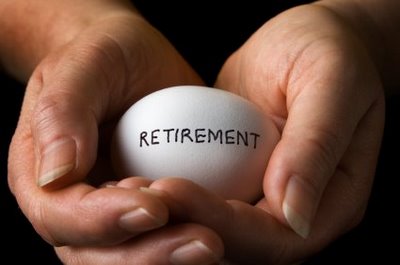News
What does Brexit mean for your pension?

In an unprecedented move, the UK has voted to leave the EU. But what does this mean for your pension?
We woke up to the shocking news that the UK public has voted in favour of Brexit.
In the run up to the referendum, voters were told that a leave result could see pension tax relief axed and the State Pension triple lock derailed. But as we seek to separate ourselves from the EU, what does this mean for your pension?
Pension tax relief
The Government said during the referendum campaign an Emergency Budget would be necessary in the event of a Brexit vote in order to balance the books.
Tom Selby, senior analyst at AJ Bell, said pension tax relief costs the exchequer an estimated £34bn a year, so slashing this incentive will be “deeply tempting for a government desperate to raise cash if the economy heads into a tailspin.”
This view is echoed by Tom McPhail, head of retirement policy at Hargreaves Lansdown, who said there may now be an increased pressure to balance the Budget, with top ups to our retirement savings potentially being an “early casualty”.
Whether an Emergency Budget is called, McPhail said the possibility of further curbs to pension tax relief has now increased, so investors would be “well-advised to make the most of the available tax relief while they still can.”
Money Purchase pension investments
McPhail said the key message for long term pension investors who may be seeing the value of their retirement savings falling today is to do nothing unless you have to.
“We are likely to experience a period of volatility in the markets and uncertainty in the wider economy, in these conditions, acting in haste is unlikely to serve well. If you are years from retirement and making regular savings, then just keep going; falls in the market mean buying investments at a lower price.”
He added that if you are close to retirement, then you should try to avoid selling funds and shares right now. Annuity rates may move in response to changing interest rates, however this is not certain.
“International and domestic demand for gilts and sterling denominated investment grade bonds will influence annuity rates, as will expectations of inflation and to a lesser degree, short term interest rate movements,” he said.
If you are in retirement and drawing an income from your investments then McPhail said a good default strategy is to draw the natural yield (dividends from equities, interest on fixed interest stocks) as this means you’re not cashing in the capital value of your investments at a time when they are falling in value.
Using this strategy, you’re likely to generate an income of about 3% to 4% on your portfolio.
Final Salary pensions
One of the key questions for those with a final salary scheme is how will their assets and liabilities move once the dust settles.
UK schemes are currently invested around 33% in shares (of which around a quarter are UK shares), 48% in gilts and fixed Iinterest, with the balance held in ‘other investments’ such as cash, property and hedge funds, according to McPhail.
“If the economy does now start to stall or even contract, as predicted by the doom-mongers on the Remain side of the campaign then corporate profits will be hit and this in turn could lead to further funding issues for employers. The only good news is that a falling exchange rate may help these businesses to export their way back to profitability.”
State pensions
During the Referendum campaign the Prime Minister warned a Leave vote could mean the end of the Triple Lock on state pensions (annual increases of the greater of CPI, earnings growth and 2.5%).
This was based on the view that the economy would take a down-turn and that public spending might not be able to sustain the £90bn a year expense of this policy.
Selby said analysis from AJ Bell suggests a 65-year-old retiring on the flat-rate state pension of £155.65 a week would miss out on at least £50,000 of income over 20 years without the triple-lock.
And with the Triple Lock seemingly looking like an early casualty, McPhail warns we could also see a more rapid increase in state pension ages as work is already under way for a review.